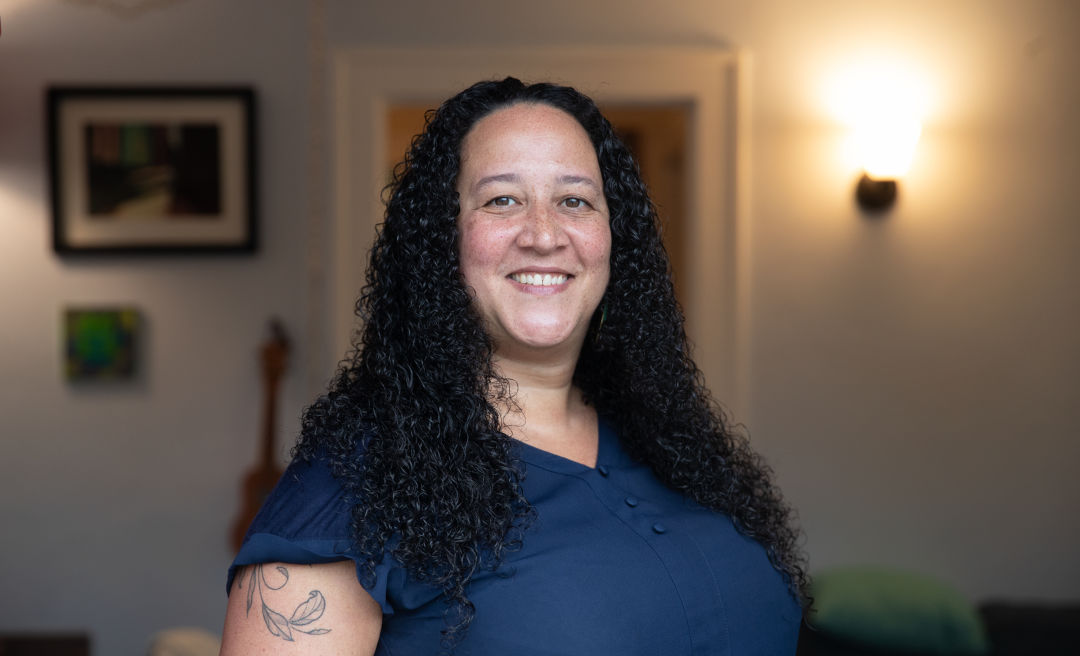7 Questions for the Next Head of the Joint Office of Homeless Services

Shannon Singleton, the interim head of the city of Portland and Multnomah County's Joint Office of Homeless Services
Image: Courtesy of Multnomah County
Heading up houselessness services for the city of Portland and Multnomah County is always going to be a highwire act—and at this very particular moment in the region, there’s no safety net to speak of, given fierce debates over encampments and sweeps, mushrooming mental health and addiction crises, and deep divides in strategy over how to spend upwards of $150 million aimed at making a difference for the thousands of people living in their cars and on the streets.
Shannon Singleton, who has most recently worked as an adviser to Gov. Kate Brown, is taking over the Joint Office of Homeless Services at this pivotal moment. Like her predecessor Marc Jolin, Singleton is an alum of JOIN, one of the city’s largest houselessness services nonprofits, which works closely with the city/county efforts, both as a contractor and to help shape policy.
Her appointment is an interim one, but Singleton—who bowed out of the race for Multnomah County Chair to take the job—says she might be a candidate for the permanent role. We talked with her about what’s on her radar screen as she steps into her new role.
Portland Monthly: What made you want to say yes to this job?
Shannon Singleton: Part of what motivated me to say yes was that we're at a critical moment where this issue is so prevalent, and we have some opportunity, I think, to do some really amazing things, with the supportive housing services [money], the behavioral health investments that are coming from the state, this recent workforce package from the state. I see all these investments moving and coming together at a point in time where it feels like we can make a critical difference in the problem that, frankly, we've just been mired in as a nation since the 1980s.
Portland Monthly: What are some of the obstacles standing in the way of forward motion right now, in addition to a dearth of affordable housing?
Singleton: One of the top-line messages we are hearing in our outreach is that case management matters. And people acknowledged we don't have enough [case managers] to actually do the work. I do expect to see that shift as the supportive housing services dollars are implemented, and staff are hired to be out there and connecting with people. I don't want to lose sight [also having] to do that for folks who are in shelters, or in safe rest villages or in any of these other place-based spaces. It's not just about folks who are on the street or other places not meant for human habitation.
Portland Monthly: Realistically, do you think it will be hard to hire people to do that work?
Singleton: I think we'll face similar challenges to many, many different industries. We're seeing that in our health care fields and around behavioral health and addiction support. A piece of what our work is is how are we really getting folks into the pipeline for social work jobs, and helping them gain access to the education and training that they need and want to serve their communities? How are we lifting up folks who are natural helpers? I think particularly in communities of color, we have long had folks who do the work. How do we really tap into their expertise and provide them some sort of income to be able to support their families?
Portland Monthly: What do you make of the conversation around a housing-first approach versus a shelter-to-housing continuum approach right now?
Singleton: I reject false dichotomies. I don't think it needs to be an either/or. It's unfortunate to me that that's the way we're having the conversation publicly right now, because it's just not actually how our system functions. I've heard a couple of folks refer to housing first being housing only. And that is not what it is. It is really about those wraparound supports. I will also share that when I started my social work career, there was no housing first; it was a continuum approach. And that step approach—you start in shelter, you prove you're ready for transitional housing, after transitional housing, you prove you're ready for real housing, permanent housing—wasn't working either for everybody. For some folks, it does. And for others, it doesn't. So I do believe in all types of solutions that exist for folks who have different needs.
Portland Monthly: Are you concerned about shelter or safe rest village models that become de facto permanent housing?
Singleton: Absolutely. This is why the permanent housing piece is such an important component. Zero stay would be ideal, but a six- to nine-months stay in emergency shelter would be really kind of where we want folks to fall. And the reality is we have folks in shelters for much longer stays because of their inability to find a permanent housing unit that they can afford, and that they can get through screening barriers. And so for the city, as the government who oversees our affordable housing development in the Portland region, as well as our partners at Home Forward, what are the things that we need to accelerate and continue to increase development?
Portland Monthly: Can you talk a little more about what you mean by screening barriers?
Singleton: A lot of the barriers to housing that we're talking about are things that folks should not actually need people like me to step in and help them with. It’s things like credit history, income-to-rent ratio, prior convictions that oftentimes can be so old that they should not be impacting your ability to rent a house. So some of these pieces don't actually predict you being a good tenant, but prevent you from renting. By the way, I have found that poor people tend to be the folks who pay their rent first, regardless of their income.
Portland Monthly: What else do you want people to know about your approach to this job?
Singleton: I think I've talked about this in a lot of places, but there's a core value of this for me through all of this work that is around racial equity, and really looking at the data and what does the story tell us about the overrepresentation of people of color? And how do we hold that when we're thinking about solutions? We really have to center those who are most impacted, which includes the folks who are on the ground and communities of color that are disproportionately impacted by homelessness.




